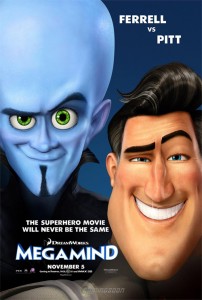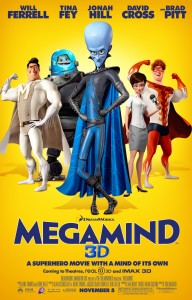 This article titled “Five things we learned from the Premier League this weekend” was written by Jacob Steinberg, for theguardian.com on Monday 22nd November 2010 00.26 UTC
This article titled “Five things we learned from the Premier League this weekend” was written by Jacob Steinberg, for theguardian.com on Monday 22nd November 2010 00.26 UTC
1) Arsenal no longer know how to win
Such is Arsenal’s inability to hold on to a lead, you would not trust them to walk your dog, let alone win the Premier League. 2-0 down at half-time, Tottenham Hotspur were helpless, hopeless and beaten – against any other side. For 45 minutes a swaggering Arsenal had held a gun to the back of their rivals’ head. Tottenham winced, waiting for the trigger to be pulled to end it all, but it never happened. It rarely does. Like a James Bond villain, they got complacent, bored even, spending too much time telling their victim what they were going to do rather than actually doing it. It was hardly surprising that Tottenham managed to escape their clutches. Arsenal were brilliant in the first half, with Cesc Fábregas and Samir Nasri foolishly granted the freedom to strut their stuff as and when they pleased. At the interval they were heading for the top of the league, which is where they would have stayed all weekend due to Chelsea’s defeat at Birmingham City.
And then they imploded, as they so often do. Already this season they have relinquished leads against Sunderland and Shakhtar Donetsk. Last year they drew 2-2 with West Ham after leading 2-0 with 16 minutes to go, and lost 3-2 to Wigan Athletic after leading 2-0 with 10 minutes left. This is a side that once contrived to draw 4-4 with Tottenham when they were 4-2 up in the 89th minute. It is not surprising, because it keeps on happening.
While there is much to admire about Arsenal’s football, they no longer know how to win and Arsène Wenger is incapable of instilling a maturity in the side. Surely he would have drummed home the importance of retaining their lead for as long as possible; within minutes of the restart, though, Tottenham were back in the game. Arsenal are too open, unable to shut up shop as champions must, lack leadership and concede too many soft goals.
Credit must be given to Harry Redknapp’s brave tactical changes that prompted Tottenham’s revival – his introduction of Jermain Defoe and redeployment of Rafael van der Vaart at half-time were inspired – but this game was all about Arsenal’s fragility in defence. Tottenham’s goals came from a long punt, a foolish handball by Fábregas that conceded a penalty and, finally, a header from a free-kick. All were eminently preventable, yet Arsenal’s creaking back four requires only the slightest push to collapse. The mistakes made by Laurent Koscielny and Sébastien Squillaci were placed into sharper focus by the imperious display by William Gallas for Tottenham. For all his foibles – at one point he appeared to be close to tears – Arsenal could have done with him on Saturday.
2) Manchester City’s players still believe in Roberto Mancini
Let’s be honest, the headlines were already written for this game. Roberto Mancini has copped a lot of stick in the past few weeks, much of it deserved, for creating a Manchester City side about as forward-thinking as the American Tea Party. With all that money, fans and neutrals alike had a right to expect something a little more progressive than Mancini’s ludicrous take on 4-3-3, which mainly seemed to feature nine players shuffling methodically behind the ball while Carlos Tevez wearily foraged alone up front. Waiting to twist the knife was Mark Hughes, the man Mancini replaced at Eastlands and now manager of Fulham. Hughes spent much of the build-up to the game making a comfy coffin for Mancini and, had Fulham won, he would have walked into the post-match press conference armed with a hammer and nails.
This, of course, is the man who was given a limitless pot of money and spent it on Roque Santa Cruz, so Hughes’s comments should be taken with a pinch of salt. Yet, had he taken revenge on Mancini for nicking his job, that would surely have been it for the Italian. Being beaten by the man they got rid of would have been a humiliation too far for City’s owners to countenance.
This was the sort of game which City’s players could have made exceedingly uncomfortable for Mancini then. Players are not entirely stupid and they would have known the consequences of defeat but rather than fold at Craven Cottage they tore Fulham to shreds. Even though Mancini refused to dispense with his three-man midfield, City were exhilarating going forward and were three up by half-time. Most pleasing for Mancini was the sight of his midfield playing with a gusto rarely seen this season. Gareth Barry laid on the assist for Carlos Tevez’s opener and Yaya Touré scored a fine goal. In the weakest title race in years City are definitely contenders. This may come to be seen as a defining moment for Mancini.
3) West Brom are on a slippery slope
Although West Brom made a big noise when they won 3-2 at Arsenal – leading 3-0 at one point – and drew 2-2 at Manchester United, they have spent the past few weeks silently slithering down the table. Almost unnoticed, Roberto Di Matteo’s halo is starting to look a tad wonky. After beating Fulham on 23 October, West Brom were sixth in the table, two points behind Arsenal in second. Now they are 15th, two points above the relegation zone.
At the time there was genuine talk of a challenge for Europe, while some fans fretted that Di Matteo’s success might lead to him getting a job offer from a bigger club, in the same way that West Ham fans once worried that Chelsea would poach Gianfranco Zola as their manager. How times change. Since those heady days West Brom have lost four of their five games, drawing the other against bottom-placed West Ham. Ominously for them, three of those defeats have come against sides they might have expected to beat: Blackpool, Wigan and Stoke. During this wretched run West Brom have scored three goals and conceded 10.
After impressing initially Peter Odemwingie has stopped scoring and the defence have started to give the impression that the 6-0 defeat by Chelsea in their first game was a truer reflection of their solidity. West Brom need a win sooner rather than later. Promoted sides often survive on a wave of euphoric momentum in their first season back and, once that has gone, it can be difficult to regain. Just ask Hull.
4) Davies takes a surprisingly brilliant penalty
Kevin Davies might not know how to use a toaster but he definitely knows how to take a penalty. The Bolton Wanderers striker spent much of his week asking his Twitter followers how to heat up a pop tart, doing nothing much to alter the perception that footballers are a bit dim. Rather like his career, though, he got there in the end.
Davies is a bizarre player in many aspects, a late bloomer who had a terrific start to his career, an old-fashioned, pointy-elbowed target man who won his first England cap at 33. He is a deceptively sharp finisher, yet has managed to reach double figures only three times in his career. And now we have found out why – he has only just started taking penalties and, somewhat bafflingly, it turns out he is something of a specialist from 12 yards.
Davies first scored a penalty in Bolton’s 4-0 victory over Wigan in March last season. This season he has scored four from four. His first was against Birmingham City in August, a right-footed side-footer that nestled in the side-netting. Essentially unstoppable. He scored a near-identical version against Tottenham two weeks ago. Davies scored two in Bolton’s 5-1 victory over Newcastle United. Both were comfortably placed into the bottom-right corner, Tim Krul sent the wrong way for the first. Before his second Newcastle’s players even told Krul which way to dive – and Davies still beat him, rolling the ball in precisely the same spot and tantalisingly out of the goalkeeper’s reach. Davies is living proof that it is never too late to learn.
5) We may already have seen the goal of the season
If Lionel Messi had scored that, we would never hear the end of it. How often is that line trotted out when a lesser-known player comes up with a wonder-strike? The point is that people tend to go all weak at the knees when Messi provides a moment of brilliance because he tends to do it every week for Barcelona. For the likes of Luke Varney, who scored a jaw-droppingly superb volley in Blackpool’s 2-1 win over Wolves, these moments tend to be a strictly once-in-a-lifetime achievement.
Not that it makes it any less special. Indeed, there is something gloriously anarchic about a player such as Varney accepting a routine pass on the left, chesting the ball down and sending an arcing, dipping volley over the head of the disbelieving Marcus Hahnemann from 30 yards out. It was a strike reminiscent of Thierry Henry’s searing volley for Arsenal against Manchester United in 2000 and praise does not come much higher than that. John Pantsil once tried to score an overhead kick in front of the Kop and, if he had pulled it off, there would have been no point in ever watching a game of football again. So heroically, defiantly implausible was Pantsil’s effort, there would have been nothing left to see, nothing left to discover. Here is hoping Blackpool fans do not feel the same way. Their team continue to amaze.
guardian.co.uk © Guardian News & Media Limited 2010
Published via the Guardian News Feed plugin for WordPress.
 Mega mind is about your typical every comic superhero series but this time, they ain’t playing the normal cliché that we normally see on screens but adding their own cliché and making this a classic; of when a criminal master mind turns from bad to good. Will Farrel (Mega-mind) wasn’t your everyday criminal when born, together with his nemesis “Metro-man (Brad Pitt)”, both were sent to earth just before their planet was destroyed (” Oh common this is just like superman”) after which on route to earth Metro-man crash landed in a well mannered and rich family whereas Mega-mind crash landed in a prison. Being the Non typical superhero movies everyone thought they would see, Mega-mind tries to be good but saw it in a little perspective that maybe his destiny was to become Bad, so he decided to become bad and fought Metro-man as his rival. Classically as you all may know the typical superhero having a cape and wearing his underwear on his pants! (so cliché) and rescuing a damsel in distress. Mega-mind after being locked up and he keeps escaping, thought of a brilliant plan to finally get rid of his nemesis (Metro-man). Kidnapping Roxanne (“Tina Fey”) he tries to lure Metro-man to come and save her whereas he has other plans to capture and destroy Metro-man using a Death-ray from the power of the Sun. Fortunately for him, Metro-man couldn’t escape his clutches after he became trapped in a fake Observatory and finally was destroy by the Death ray (” As so we thought”). Being Astonished by the success of his plan because his plan always fails, Mega-mind became relentless to all his cause, and thought of life from another perspective of not having a Superhero come Save the day when he tries to ruin it. Later on in the movie he got close to Roxanne and practically fell in love with her likewise so did Roxanne but Mega-mind Disguised himself to be Bernald (“Ben Stiller”) – a specialist on Mega-mind’s thinking which Roxanne didn’t know. Mega-mind feeling down thought of a crazy idea to create a superhero that will always save the day because he thought of his purpose to be useless without a superhero.
Mega mind is about your typical every comic superhero series but this time, they ain’t playing the normal cliché that we normally see on screens but adding their own cliché and making this a classic; of when a criminal master mind turns from bad to good. Will Farrel (Mega-mind) wasn’t your everyday criminal when born, together with his nemesis “Metro-man (Brad Pitt)”, both were sent to earth just before their planet was destroyed (” Oh common this is just like superman”) after which on route to earth Metro-man crash landed in a well mannered and rich family whereas Mega-mind crash landed in a prison. Being the Non typical superhero movies everyone thought they would see, Mega-mind tries to be good but saw it in a little perspective that maybe his destiny was to become Bad, so he decided to become bad and fought Metro-man as his rival. Classically as you all may know the typical superhero having a cape and wearing his underwear on his pants! (so cliché) and rescuing a damsel in distress. Mega-mind after being locked up and he keeps escaping, thought of a brilliant plan to finally get rid of his nemesis (Metro-man). Kidnapping Roxanne (“Tina Fey”) he tries to lure Metro-man to come and save her whereas he has other plans to capture and destroy Metro-man using a Death-ray from the power of the Sun. Fortunately for him, Metro-man couldn’t escape his clutches after he became trapped in a fake Observatory and finally was destroy by the Death ray (” As so we thought”). Being Astonished by the success of his plan because his plan always fails, Mega-mind became relentless to all his cause, and thought of life from another perspective of not having a Superhero come Save the day when he tries to ruin it. Later on in the movie he got close to Roxanne and practically fell in love with her likewise so did Roxanne but Mega-mind Disguised himself to be Bernald (“Ben Stiller”) – a specialist on Mega-mind’s thinking which Roxanne didn’t know. Mega-mind feeling down thought of a crazy idea to create a superhero that will always save the day because he thought of his purpose to be useless without a superhero.  After creating the Formula that can induce a normal person with Superhero like power, he accidentally shot the formula into the wrong candidate Hal/Titan (“Jonah Hill”), Hal/Titan also in love with Roxanne and seeing that she wasn’t into him became Bad after Mega-mind revealed himself to being Bernald the guy Roxanne was really in love with. Titan started causing mayhem and no one could stop him, this was actually when both Roxanne and Mega-mind found out that Metro-man was still alive and he faked his death because he felt that the whole superhero thing about saving the day was all too cliché and that he needed to do his own thing which was Music. Getting No help from the Real Metro-man, Mega-mind and Roxanne went back to their city called (“Metro-city”) to battle out Titan who has now caused havoc in the city. In the end Mega-mind finally defeated Titan, got the girl – Roxanne and became the new superhero of Metro-city. This movie is going to be a classic of how a villain turns from Bad to Good when there was no good to fight against evil. it entails a character which from the onset didn’t want to be bad in the first place but without an option felt it was the right choice to make.
After creating the Formula that can induce a normal person with Superhero like power, he accidentally shot the formula into the wrong candidate Hal/Titan (“Jonah Hill”), Hal/Titan also in love with Roxanne and seeing that she wasn’t into him became Bad after Mega-mind revealed himself to being Bernald the guy Roxanne was really in love with. Titan started causing mayhem and no one could stop him, this was actually when both Roxanne and Mega-mind found out that Metro-man was still alive and he faked his death because he felt that the whole superhero thing about saving the day was all too cliché and that he needed to do his own thing which was Music. Getting No help from the Real Metro-man, Mega-mind and Roxanne went back to their city called (“Metro-city”) to battle out Titan who has now caused havoc in the city. In the end Mega-mind finally defeated Titan, got the girl – Roxanne and became the new superhero of Metro-city. This movie is going to be a classic of how a villain turns from Bad to Good when there was no good to fight against evil. it entails a character which from the onset didn’t want to be bad in the first place but without an option felt it was the right choice to make.
 When i heard this song for the first time, i just fell in love with the instrumental, they’re so unique that you get the best core rappers and one of the best R&B singers to even have a part in it. The concept of the video seems vague but quite ok, i like the fact that Usher got to sing in this song, normally he’s not the type that you can always see in a rap video but this time, i think he’s becoming diversified in other genre of music just like “R.Kelly”. Rick Ross, Jeezy & Drake also got to rap in this song, a combination of various talents made this song to be the top list of my favorite songs of 2010.
When i heard this song for the first time, i just fell in love with the instrumental, they’re so unique that you get the best core rappers and one of the best R&B singers to even have a part in it. The concept of the video seems vague but quite ok, i like the fact that Usher got to sing in this song, normally he’s not the type that you can always see in a rap video but this time, i think he’s becoming diversified in other genre of music just like “R.Kelly”. Rick Ross, Jeezy & Drake also got to rap in this song, a combination of various talents made this song to be the top list of my favorite songs of 2010.

